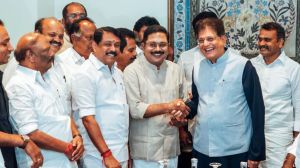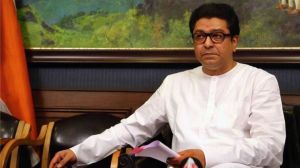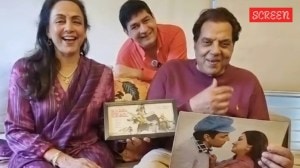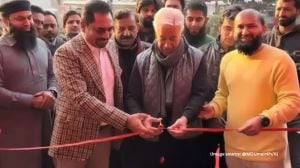The general8217;s elections
The devolution of powers plan unveiled by Pakistan's strongman, General Pervez Musharraf, earlier this week is an ambitious attempt by the...

The devolution of powers plan unveiled by Pakistan8217;s strongman, General Pervez Musharraf, earlier this week is an ambitious attempt by the government to devolve power to the grassroots level. While this is a welcome step in theory, the fact that the military hopes to hold non-party elections to the local bodies from December 2000 onwards to elect those who will run the new form of government in Pakistan gives the impression that the government is going overboard in its attempts to keep political forces away from the polls.
It is no surprise, therefore, that most political parties have rejected an otherwise ambitious programme under which the all powerful deputy commissioners of districts will come under an elected 8220;Nazim8221;, who will have command over the local police force as well. This is the first experiment of its kind in Pakistan, where power is being taken down to such a level. In this country, even posting orders for high police officials in provinces come from Islamabad; within such a set-up, the proposals unveiled by General Musharraf are nothing short of revolutionary. Under his blueprint, the local government set-up will be in place by mid-2001. More significantly, voting age has been lowered from 21 years to 18 and one-third of elected officials have to be women.
Now, the biggest challenge for the government is to make this plan work. From December 2000 onwards, over 225,000 councillors will be elected directly and a total of 10,835 town and union councils will come into being. 8220;This is all very confusing. Even the military leadership is not sure how this plan will work,8221; complains one analyst.
What is more worrisome, however, is who will be eligible to stand for election under the selective accountability drive launched by the Musharraf government. Not content with disqualifying politicians from participating in elections if they have a criminal record or are in any way found guilty in a corrpution case, the government has now issued an ordinance under which such people cannot even be party office-bearers. This way, the government has tried to debar the older politicians from becoming king-makers.
However, by excluding the military, the judiciary, the press and the religious leadership from accountability, the government has managed to work towards creating a new leadership for Pakistanis to vote into power. Besidesretired judges and generals, who are generally well regarded in Pakistan despite the murky role played by both the judiciary and the military in the past, the real danger comes from the religious leaders.
In any free election in the past, religious parties have fared poorly because of the fact that people are not ready to vote them into power. General Musharraf is trying to change all that by allowing these people the advantage of contesting at a time when most known politicians are having to stay away. Observers say that this may not bode well for Pakistan8217;s future. Already, sensing blood, the right wing Jamaat-e-Islami party has started to indulge in some good old-fashioned posturing so that they can fare better than in previous elections, when they managed to barely get one member elected to parliament. Other more extreme parties are also gearing up for the bonanza the military has dropped into their laps.
However, established parties have privately said that they would be fielding candidates, most of whom will run on their own even though no secret will be made of their alliances with the parent party.
In previous instances, when non-party polls have been held, horse trading has ensured that elected representatives sold themselves to whoever wanted to pay the highest price. This is bound to happen once again as private members get elected.
The manner in which the military junta is trying to keep out politicians from the voting process begs the question as to whether democracy is what the military has in mind. As things stand, it seems that this may just not be what will come the Pakistanis8217; way when the men in khaki move out. In effect, nothing would have changed.
In previous instances as well, the military government of the day tried to bring in what was described in the official media as 8220;clean and upright politicians.8221; It is with this in mind that General Musharraf has been meeting the 8220;clean politicians8221;, and dismissing any prospects of meeting former Prime Minister Nawaz Sharif, who has been signed off as nothing more than a convict. While the military cannot understand why Pakistanis are insistent on electing the same old corrupt politicians one after the other, its solution to this has raised more questions than it has been able to answer. Keeping in mind the plans ahead that the military has made for Pakistan, what remains to be seen is whether these ambitious targets are met with the same efficiency with which they were laid out.
Readers can send feedback to focusexpressindiacom.
- 013 hours ago
- 0214 hours ago
- 0316 hours ago
- 0416 hours ago
- 0516 hours ago































